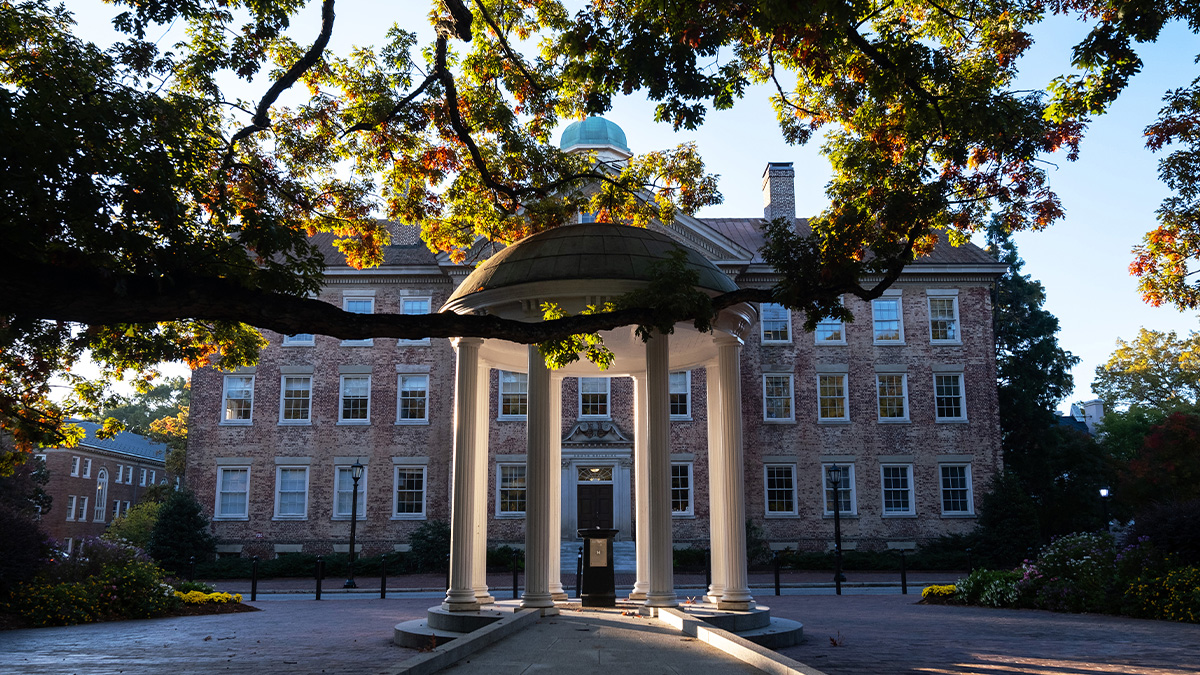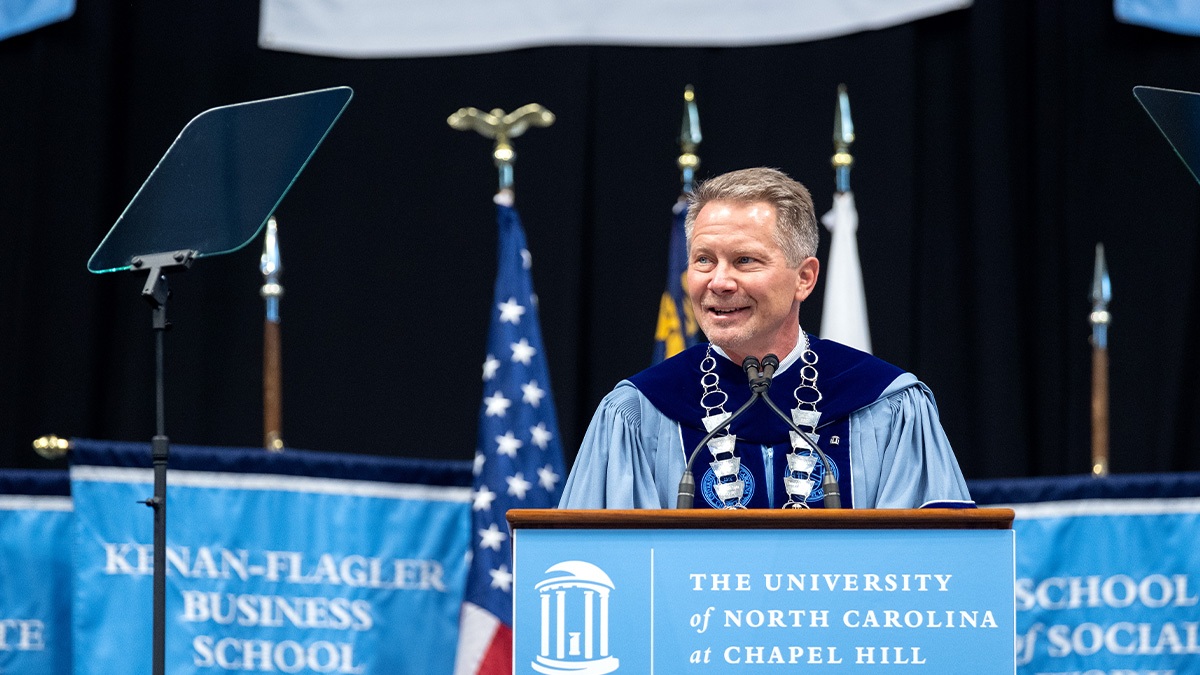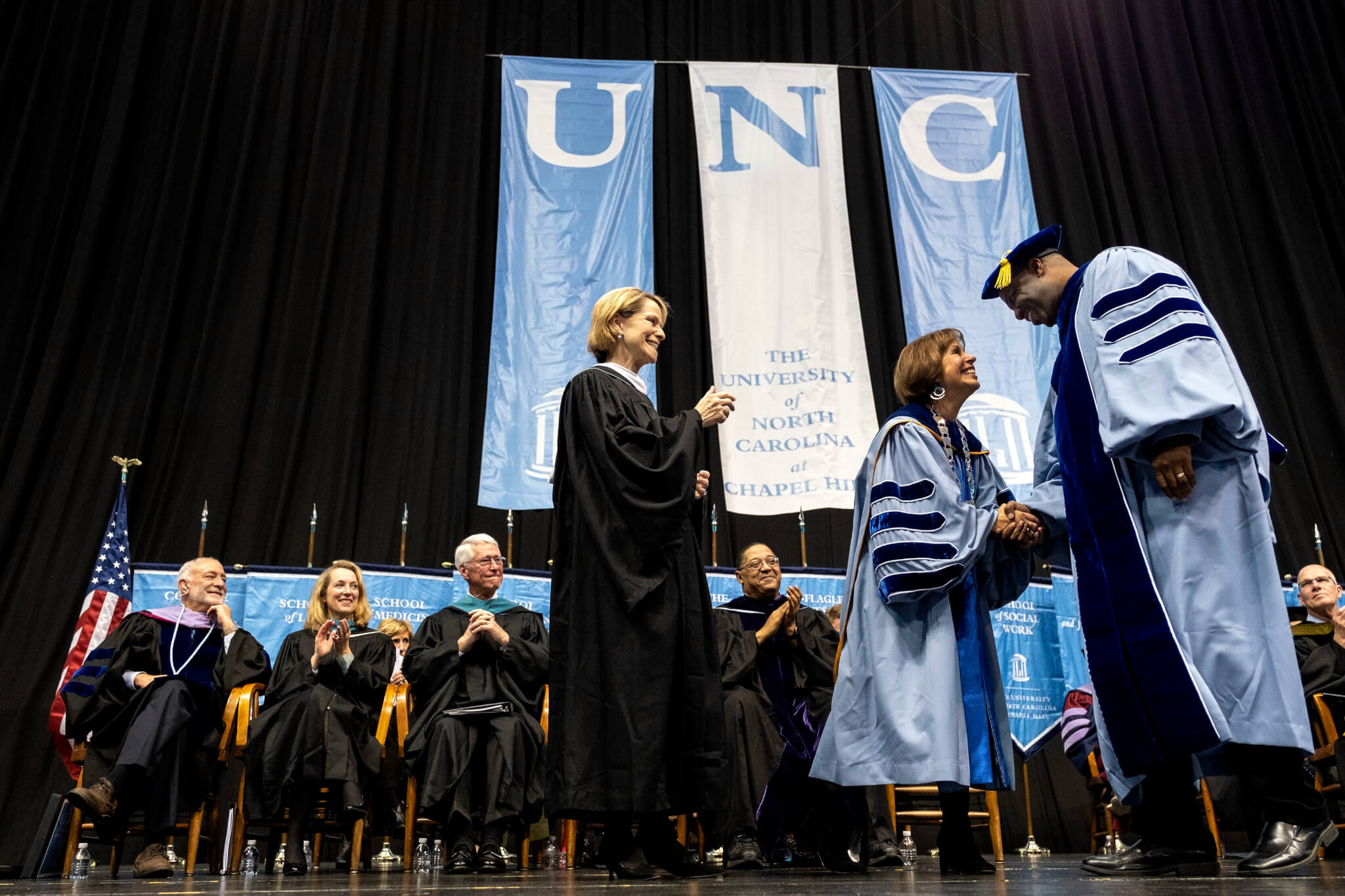Carolina Conversations focuses on First Amendment
Chancellor Carol L. Folt said the dream for Carolina Conversations, now in its third year, was to create a place on campus where members of the community could quickly convene to talk about the issues of the day that mattered most to them.
Folt made those remarks at the first Carolina Conversations of the academic year, which was held Sept. 6 in Wilson Library. The topic – a “First Amendment Primer” presented by Vice Chancellor and General Counsel Mark W. Merritt – addressed many of the difficult questions about the Confederate monument on campus, commonly referred to as Silent Sam, which has been a source of protests over the years, including this academic year.
Merritt said the University has consistently followed three guiding principles in connection to the monument. The University will obey the law, protect people’s safety and respect the peaceful protests happening on campus.
One faculty member said he and others are more interested in fighting for justice than following the law when it is unjust.
“That is an important point,” Merritt responded, “Law and justice and morality are not always aligned. We know that from history. My viewpoint is, ‘Then go change the law. We’ve got means and methods as citizens to lobby and change laws that we find unjust.’”
Merritt said there are groups with disparate and competing views about Silent Sam.
“I understand that people are passionate about each one of those viewpoints and they have a right to be. But how to we get from Point A to Point B?” he asked.
As a University, Merritt said, “what we want is civil debate around ways to solve problems.” What the University cannot do, he said, is pick and choose what speech to allow based on its content.
“That means that, out of respect for the First Amendment, a lot of hateful and offensive speech is going to be protected,” Merritt said. “If you want to have a First Amendment to protect your right to speak, you’ve got to have a tough hide.”
He added: “The Supreme Court has repeatedly said the antidote to bad speech, to hateful speech, to offensive speech, is good speech, well-informed speech, speech that meets the issue in a way you can have productive dialogue. That’s the antidote, not shutting down people who happen to have different viewpoints, and sometimes that seems incredibly hard.”
Both Folt and Associate Vice Chancellor for Diversity and Inclusion Rumay Alexander stressed that the purpose of Carolina Conversations, no matter the topic, is to freely express and share ideas with each other.
“Our job is not around telling you what to think,” Alexander said. “It is to provide you with information so you can begin to start putting your wonderful minds to it and making suggestions. This is a two-way street. It’s not just us. It’s also you.”
By Gary Moss, University Gazette



